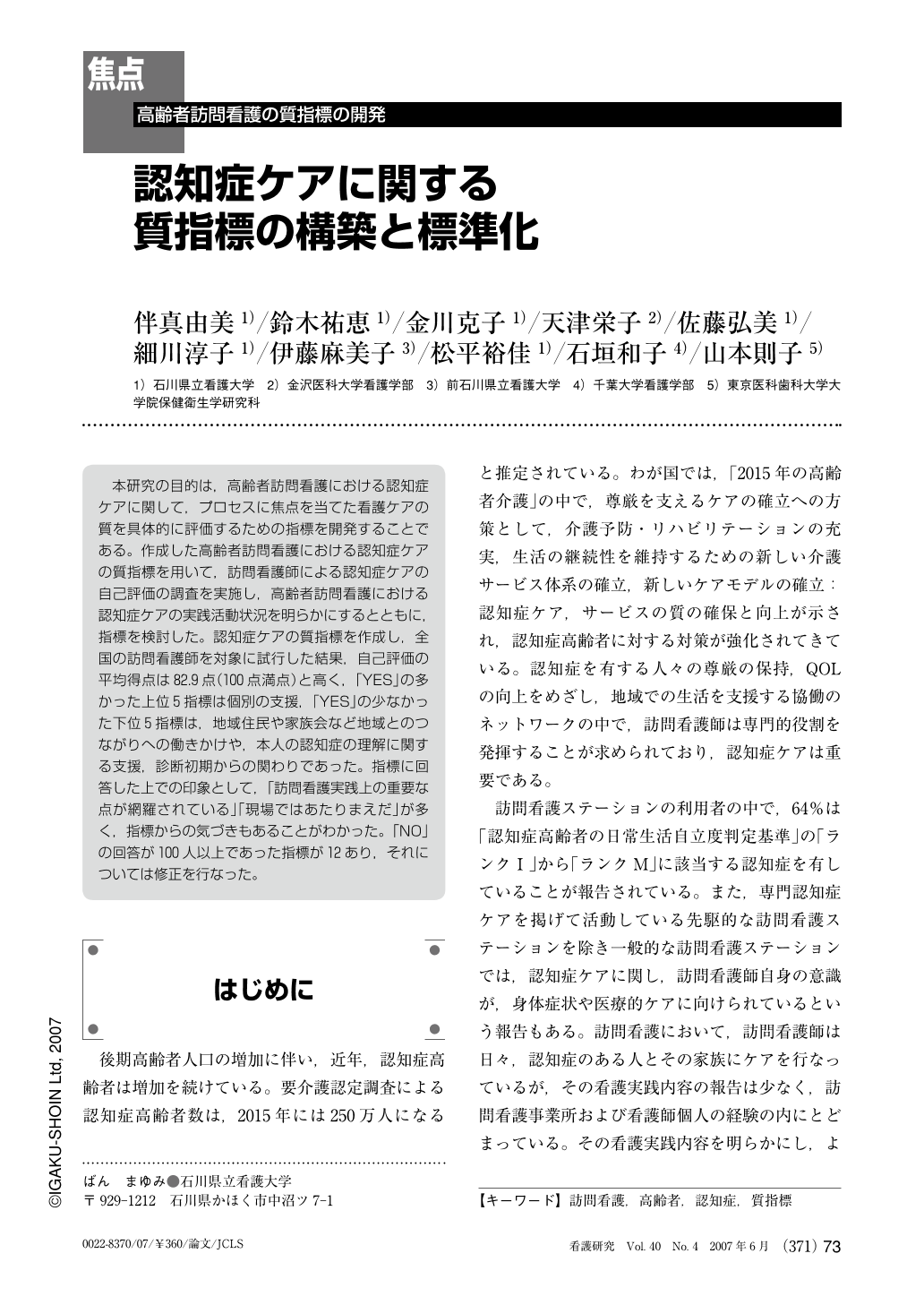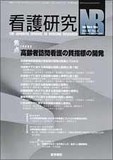Japanese
English
- 有料閲覧
- Abstract 文献概要
- 1ページ目 Look Inside
- 参考文献 Reference
- サイト内被引用 Cited by
本研究の目的は,高齢者訪問看護における認知症ケアに関して,プロセスに焦点を当てた看護ケアの質を具体的に評価するための指標を開発することである。作成した高齢者訪問看護における認知症ケアの質指標を用いて,訪問看護師による認知症ケアの自己評価の調査を実施し,高齢者訪問看護における認知症ケアの実践活動状況を明らかにするとともに,指標を検討した。認知症ケアの質指標を作成し,全国の訪問看護師を対象に試行した結果,自己評価の平均得点は82.9点(100点満点)と高く,「YES」の多かった上位5指標は個別の支援,「YES」の少なかった下位5指標は,地域住民や家族会など地域とのつながりへの働きかけや,本人の認知症の理解に関する支援,診断初期からの関わりであった。指標に回答した上での印象として,「訪問看護実践上の重要な点が網羅されている」「現場ではあたりまえだ」が多く,指標からの気づきもあることがわかった。「NO」の回答が100人以上であった指標が12あり,それについては修正を行なった。
The purpose of this study was to develop process-oriented quality indicators (QIs) to evaluate the quality of dementia care in home nursing for aged. We conducted a preliminary survey on the self-rating of home nurses using the dementia care QIs. Based on the survey, we examined the clinical practice of dementia care among home nurses for aged, as well as the contents of the QIs. The average score of self-rated dementia care QIs was 82.9 out of 100. The five indicators that were rated highest were related to the interventions for individual assistance, while the five indicators that were rated lowest were related to the interventions for the community such as lay persons and family support groups, explanations to the person with dementia him/herself, and intervention in the early stages of dementia. Nurses evaluated that the QIs cover important points of dementia care in home nursing and that many indicators are commonly practiced. Many nurses evaluated that the QIs heightened their awareness regarding dementia care. There were 12 QIs that had more than 100 nurses answer “No (I do not do this in my daily practice).” These QIs were modified in their contents.

Copyright © 2007, Igaku-Shoin Ltd. All rights reserved.


